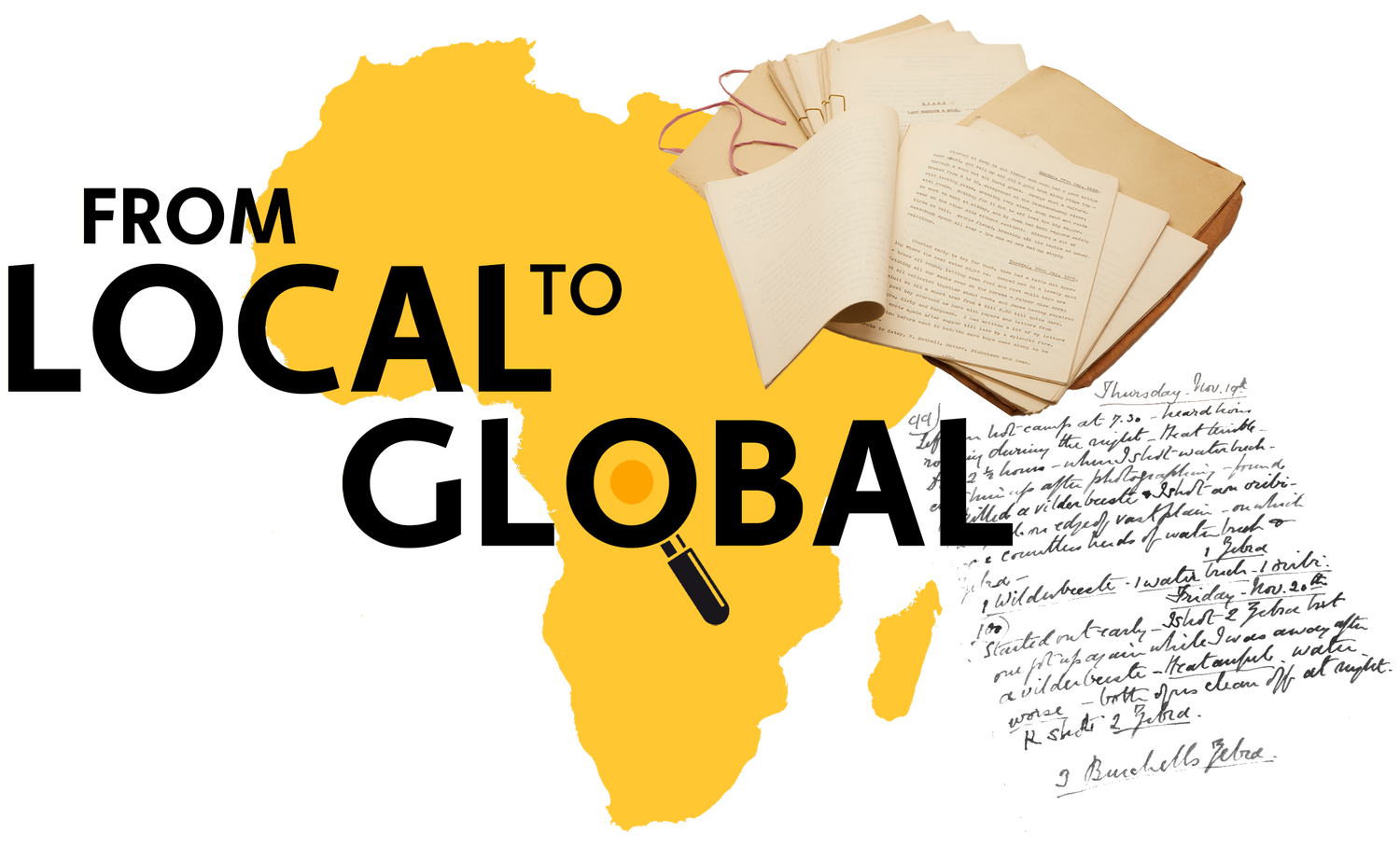
From Local To Global
The role of citizen researchers
By Sheila McGregor
One of the unusual features of From Local to Global is the involvement of citizen researchers. The idea was inspired by the ‘citizen science’ movement which emerged in the 1990s and is now widely regarded as a pillar of scientific research.
There is no hard and fast definition of ‘citizen science’ – the term only entered the Oxford English dictionary in 2014. But a quick internet search reveals some key concepts and characteristics. Fundamentally, it’s about public participation in scientific research in a way that expands the capacity of the professional scientific community, opens up the research process to new lines of enquiry and advances the public understanding of science.
You could say that citizen scientists and, indeed, citizen researchers have been around for a long time. After all, many museums were founded on the collections of prominent local citizens who were active in scientific, historical and philosophical societies.
Scarborough’s own Rotunda Museum was formed on the basis of fossils, minerals and other specimens of natural history and antiquity collected by local historian Thomas Hinderwell and gifted to the museum by his nephew Thomas Duesbery. A plaque installed by Scarborough Philosophical Society in 1836 affirms “their veneration, for the virtues and scientific labours of the former, and their gratitude for the munificence of the latter”. Essentially, individuals like Hinderwell were amateur researchers, contributing out of enthusiasm to the larger sum of human knowledge.
Ideas about voluntary effort in the service of a common good have never been far from the history of museums in the UK. In the 19th and early 20th centuries, it was individual collectors and benefactors who embodied this ideal, even if their practices and values might now come under sceptical scrutiny. More recently, volunteering in museums has become increasingly commonplace and, in some situations, the very lifeline that enables them to survive.
Citizen researchers © Scarborough Museums and Galleries
In the professional sphere, high-profile advocates of the ‘participatory museum’ such as Nina Simon in the US and grassroots networks such as Museum Detox in the UK have argued for a more inclusive ethos, a willingness to embrace ‘co-production’ (i.e. producing activity in an equal partnership with members of the community) and the reversal of longstanding power relationships. There is pressure, too, from funders to ensure a more equitable social and geographic distribution of funds derived from taxation and the national lottery. All this means – or ought to mean – that curators and other professional staff are no longer the repository and custodians of all knowledge and interpretation.
Against this backdrop, the concept of citizen researchers requires some unpacking. How is the programme different from more familiar patterns of volunteering in museums? Will it support the professional staff who run museums to do better by the collections they hold and the communities they serve? And, in the context of a project about colonialism, will it offer participants and audiences new perspectives on our colonial past?
From Local to Global has enlisted 45 citizen researchers, about 25 of whom are currently active. At a workshop earlier this month we began to explore some of these questions by asking the participants to write down three words associated with being a citizen and three words associated with being a researcher.
The responses show that citizenship is linked with a sense of belonging in a particular place, but is not necessarily limited by geography. A citizen of Scarborough could just as easily consider themselves a citizen of Europe or even the world. The word/s that occur most often are “responsible” and “responsibility”, alongside words that imply a far-reaching set of concomitant rights and obligations, for example to pay tax, vote, contribute and care about the needs of society as a whole.
Citizen researcher © Scarborough Museums and Galleries
The words people saw as being most closely associated with research - ‘open-minded’, ‘inquisitive’, ‘determined’, ‘organised’, ‘integrity’ – indicate how powerfully they are attracted by the idea of learning something new in a spirit of openness and enquiry. When asked what they might bring to From Local to Global, people talked about using or developing their research skills, their love of history and, above all, enthusiasm. What they wanted to get out of the project was a new body of knowledge and understanding, a sense of ‘community and connection’ and the opportunity to meet ‘like-minded’ people.
It is early days for From Local to Global. But notions of democratic responsibility and collective endeavour appear to be a big motivating factor for the people taking part. How this then plays out in relation to the larger aims of the project has yet to become clear, but will be fascinating to observe.
About the author
Sheila McGregor - is a freelance curator and evaluation consultant for From Local to Global
